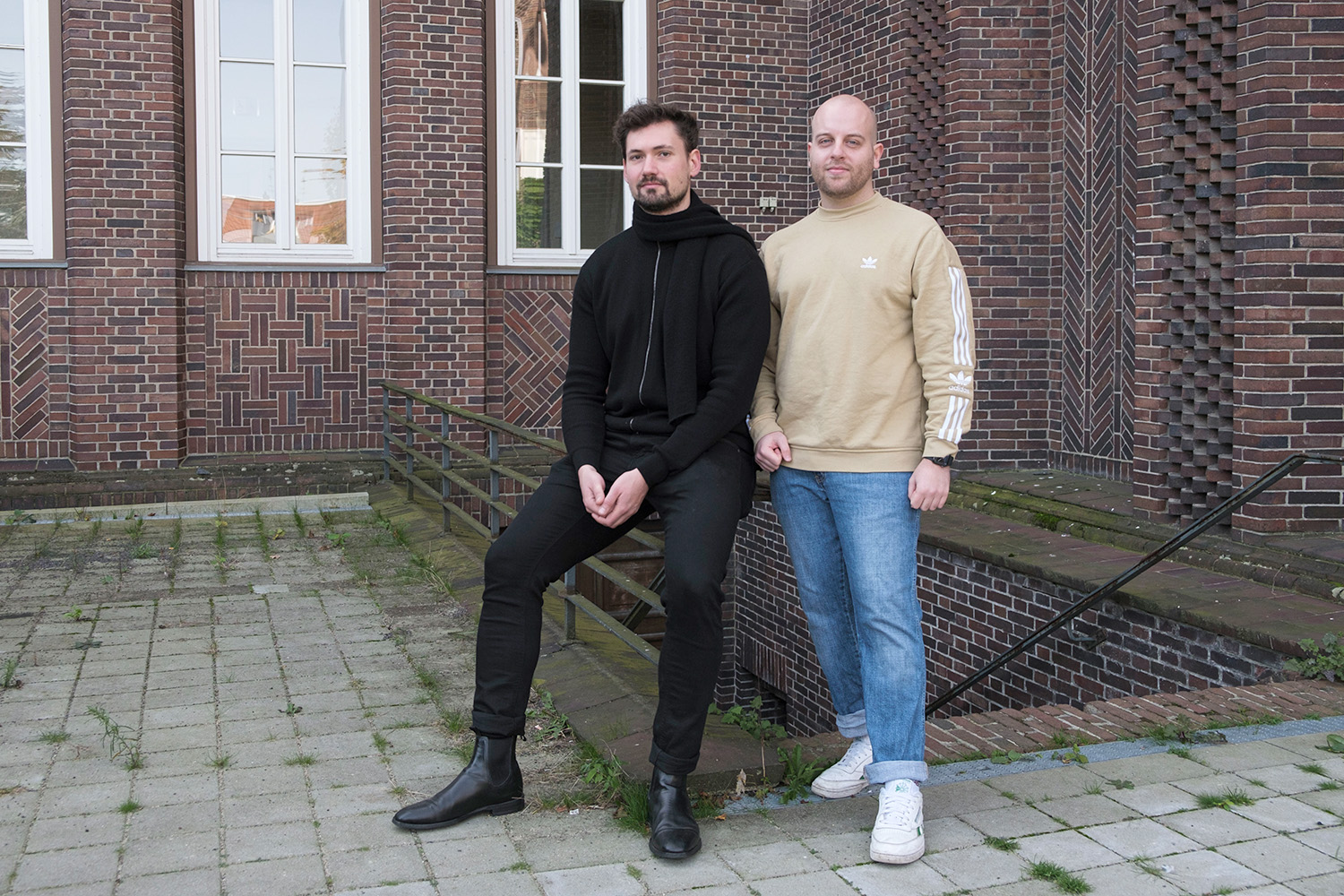Statistics and Research Design: Students Advise Students What method counselling offers
Hypotheses, models, statistics and research design – empirical methods are part of many students’ tools of the trade, especially when it comes to seminar papers and theses. Anyone who has questions about this complex topic can contact MethodAid. MethodAid is a student association that has been advising students since 2018. In workshops and web conferences, it gives tips on how to set up surveys, samples and evaluations, for example. Students were awarded the Lower Saxony Science Prize in 2021 for their commitment. We spoke with the two initiators Gordon Grabert and Hendrik Gräfe about the student method consultancy.

Hendrik Gräfe and Gordon Grabert. Credits: Jan Diedrich/TU Braunschweig
How did the idea for a methods consultation for students come about? Was there a specific occasion?
Gordon Grabert: Empirical research plays an essential role in subjects like psychology. Students conduct questionnaire studies or experiments in the course of their studies and especially for theses. For many of them, statistical modelling as well as study planning considerations are a major challenge. At that time, before the foundation, there was no advisory service for students for such questions. Advice was often sought from fellow students. This can be explained, among other things, by the fact that many students have great respect for approaching lecturers and professors with questions. Against this background, the idea of a student-based, low-threshold methods counselling service was born.
When was it clear that this was going to be raised bigger?
Hendrik Gräfe: That was actually the goal from the very beginning. We quickly realised that everyone who deals with research methodology and statistics is confronted with very similar problems. However, it was also important to us not to overreach ourselves and to proceed with the development of MethodAid with caution.
What questions do the students come to you with?
Hendrik Gräfe: Questions relate, for example, to the choice of an appropriate statistical test or to the interpretation of complex statistical models. Other questions relate to identifying the right research design. Here, the challenge often lies in the fact that only small samples can be collected. This raises the question of how, despite many practical limitations, a sound study can still be conducted.
In most cases, students make use of the advisory service to get an opinion on whether the chosen procedure for the statistical testing of the established hypotheses is appropriate or whether there are alternatives. It is not uncommon to find that the problems in planning the statistical modelling stem from the fact that the questions and hypotheses derived from the theory were not set up properly. One result can therefore be that in counselling it is recognised where the shoe actually pinches. Ideally, the students know where they need to improve after the counselling. Many problems then solve themselves.
How do you organise yourselves, how many are you today, who does what?
Gordon Grabert: The development of MethodAid started in autumn 2017. We have been offering this advice since the beginning of January 2018. Since 2020, we have had the status of a student association at the TU Braunschweig. We currently consist of eleven students (as of October 2021), primarily from psychology. The association is run by a board of directors, of which we are one of the members. Basically, all members act as advisors. The board also takes care of organisational and administrative tasks, as well as representing the association externally. In principle, all students who enjoy and are interested in research methodology can join. The field of study does not play a role.
Surely it all takes a lot of effort. What drives you?
Hendrik Gräfe: One of our essential credos is that we are a community of people who enjoy research methods and statistics. For us, this is worthwhile if only because we can use our interest and knowledge in a nice way while educating ourselves in the process. At the same time, we are able to make a positive contribution to the quality of student work. And last but not least, we experience a lot of recognition and gratitude for what we do. That touches and motivates us immensely. In this sense, the awarding of the Lower Saxony Science Prize to students for their commitment to MethodAid was also a nice appreciation. Such events show us all that we are working for a good cause.
And now in the pandemic situation, how can you continue your work?
Gordon Grabert: Our counselling services can be digitised very well through WebEx and BigBlueButton and provide us with creative freedom that we were not aware of before. We are considering keeping this after the pandemic and supplementing it with on-site services as part of a hybrid model.
Can you also support internationals?
Gordon Grabert: We can and very much want to support internationals and would be happy to receive more visitors from this direction. We want to achieve this in the future through a stronger bilingual approach via homepage or e-mail.
What is planned next?
Hendrik Gräfe: An important topic for us is networking within and outside the university. Networking among students suffered greatly during the pandemic. But it is precisely this that is important for cohesion, creativity in the development of projects, the formation of friendships and professional and personal development.
We have set ourselves the goal that the cross-disciplinary awareness of MethodAid grows. Not only by expanding the target group of our counselling, but also through new members. In addition, we focus on networking in cross-university networks (e.g. PsyFaKo) in order to jointly develop concepts and formats to offer a larger platform for student engagement with research methods and statistics and possibly even to act more widely as a role model for students in the DACH area.
